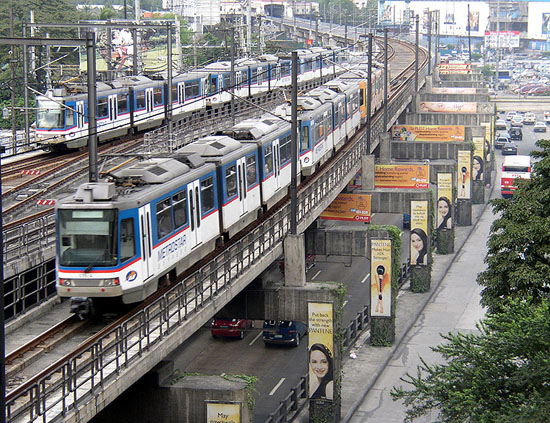Breaking
Government eyes MRT buyout in 2015
MANILA, Philippines – With the recent breakdowns of Manila’s nearly-dilapidated Metro Rail Transit (MRT) taking center-stage of public attention the past month, the Philippine government has announced its plans to take over the train line along EDSA in 2015.
This statement was made by Davao City Rep. Isidro Ungab, House appropriations committee chairman, at the commencement of plenary debates on the proposed P2.
606-trillion national budget for 2015.
At present, state financial institutions Land Bank and Development Bank of the Philippines have an 80-percent stake of ownership (worth P35-billion) of the train system, while 20-percent is owned by private investors based in Singapore.
In response to queries from Rep. Neri Colmenares of Bayan Muna, Ungab said that the government is looking to take over the EDSA rail line so that it can take into its own hands the matter of solving the MRT’s numerous problems, without interference from its owners.
Furthermore, he said that the 2015 budget proposal has allocated P54 billion for the state’s “equity value buyout” of the MRT from its current owners.
However, as noted by Ungab, the P54-billion allocated in the proposed 2015 budget for the MRT buyout will only be released if the arbitration case between the government and MRT’s private owners comes to a resolution.
Colmenares queried further: “If the two state banks’ 80-percent ownership of MRT is worth P35 billion, why would taxpayers pay P54 billion for the private owners’ 20 percent? Besides, the rail line, according to the Department of Transportation and Communications (DOTC), was built for a total of only P28 billion.”
The matter was later on clarified by Finance Secretary Cesar Purisima who told reporters that the P54-billion allocation will be spent on the entire train facility.
Meanwhile, Rep. Anthony Bravo of Cooperatives Network Party called on DOTC officials to come up with “real solutions” to addressing the MRT’s numerous problems; instead of solutions “that are just for show.”
“Just like the DOTC secretary’s act of riding the MRT, the DOTC’s response to the MRT has been shallow at best, pointless at worst,” Bravo said.
Bravo gave reference in specific to DOTC’s announcement last week about the creation of a “special group” which will oversee MRT maintenance and “shadow” the performance of APT Global, the train’s current maintenance provider.
“While it’s true that there has been a number of well-publicized incidents at the MRT, a cursory look at the data will show that current maintenance provider, when compared to previous service providers, has had the least number of train removals, and hence, the most number of available trains,” he said, noting that dataindicates that peak-hour train availability is at its highest under Global APT.
He added, as well, that based on the data, the DOTC “should know that the quality of maintenance services being provided is not the issue, especially when you consider the age of the trains, and particularly because even President Aquino has pointed out the culprit behind all these glitches: the non-overhaul of the system,” citing the President’s statement last Friday about the long-overdue overhaul of the MRT system.






















